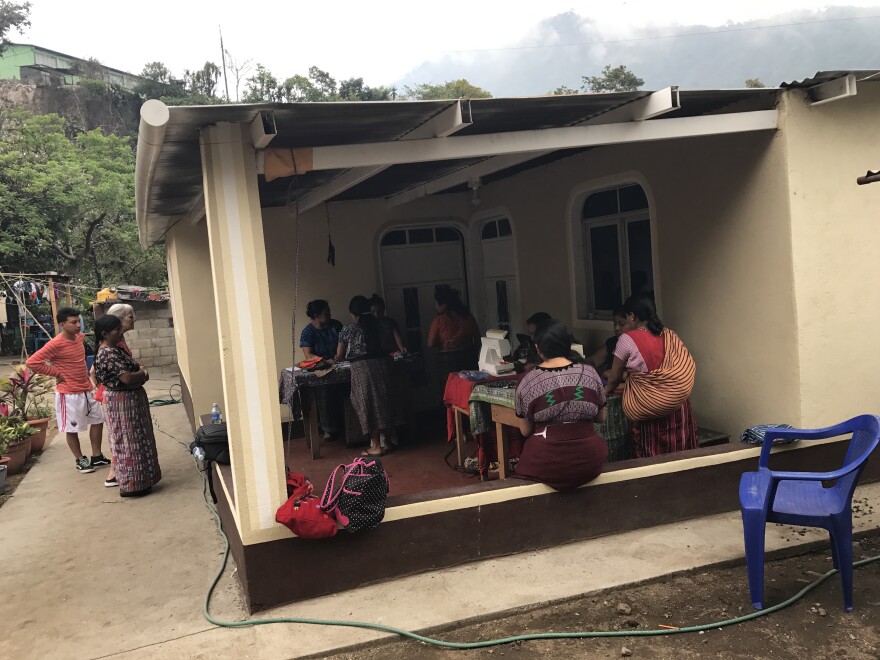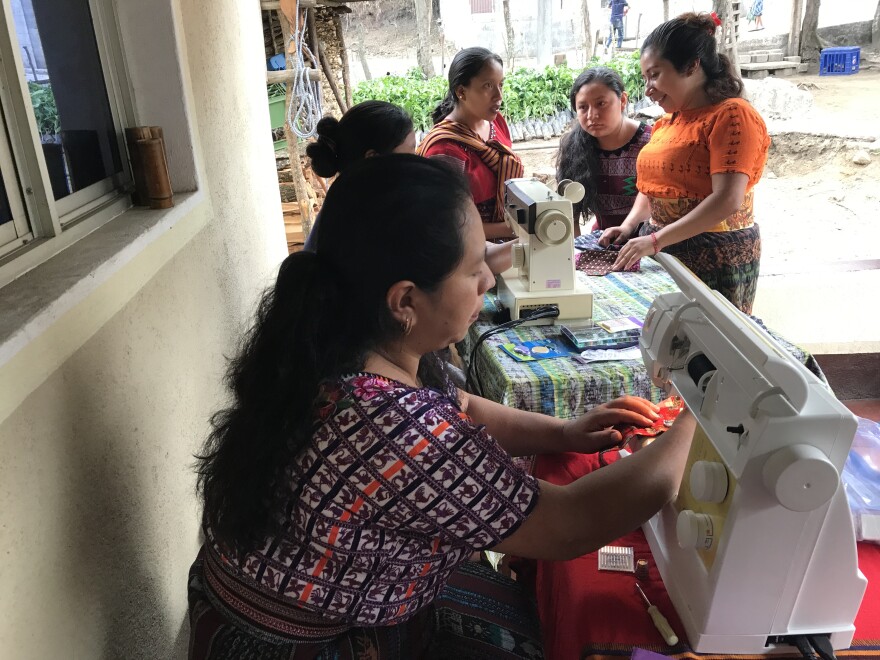There’s a village in rural Guatemala where women are selling hand-sewn reusable menstrual pads. It’s a product medical experts say is necessary in some impoverished areas because women and girls cannot afford disposable pads.
The business, funded by a Fort Myers nonprofit, is staffed mostly by single mothers escaping violence.
On a Monday morning in May, they are working on the back porch of a home in the rural village of San Lucas Tolimán. Eight Mayan women are busy, taking turns using the two sewing machines they have, which were donated by people from Southwest Florida.

A couple other women sit off to the side of the sewers, measuring and cutting fabric. They’re making the washable menstrual pads they’re calling “Lunas,” meaning “Moons” in Spanish.
Vilma Morles heads this startup with her partner Rita Chajil.
“Esto es una idea fantastica porque es nuevo en el mercado,” which roughly translates to saying it’s a fantastic idea because it’s new to the business market around Lake Atitlán.
Usually these pads are seen around the area when they come in as donations to help keep women’s menstrual practices healthy.
Morales was inspired to start this business back in November of 2017 when volunteers with the nonprofit GRACE Project out of Fort Myers distributed these pads in villages across Guatemala.
"Mi meta es fortalecer a las mujeres que se sientan útiles porque muchas de ellas vienen de unas situaciones muy violentas con sus familias y por consecuencia ellas tuvieron que quedarse con sus hijos sin padres," she said, explaining that the goal of this business is to strengthen the women in her village.
She said a lot of them come from violent homes, and she wants them to feel valued.

Morales said some of the women left their husbands and are raising their children as single mothers, so she wants to make them feel like they can help their kids move forward in life.
One of the women in Lidia Faviana Hernandez, who is on the sewing porch, with her baby swaddled on her back. Her second child is playing ball with other kids in the yard, as she works. She’s a single mother.
"Para mi, espero que sea lo mas beneficiable porque tengo mis dos hijos que criar y estando aqui haciendo eso los puedo ver y trabajando," she says, explaining that this is an ideal job because she can care for her two children while working. And she hopes to bring in a bit of money, Hernandez said.
Genelle Grant, founder of the GRACE Project, said the majority of these women don’t have job options in this community because they can’t leave their kids to work.

"Our vision is that other women from around Guatemala will see this and eventually will be teaching other women how to set up their own businesses," Grant said.
The organization is funding the business, acquiring sewing machines and materials in Southwest Florida to then ship to Guatemala. Grant plans to help launch more cooperatives in different parts of the country, once this first group of women figures out a successful business model.
https://www.youtube.com/watch?v=-iXE2ueRorY
Dr. Kirsten Austad is director of women's health for a nonprofit called Maya Health Alliance in Tecpán, Guatemala.
She said many of her patients have vaginal itching and burning after sitting on rags to catch their period flow -- rags that they’ve sometimes used for other things, like cleaning, which could involve harsh chemicals.
"There's definitely a need for women to have a product they sort of keep separate from everything else that they can use when they're bleeding and that can prevent that type of irritation," said Austad.
She said this product also benefits young girls, who sometimes miss school over worries about staining their traditional skirts in class during their periods.
The two female business leaders in San Lucas Tolimán say they also want to ensure young girls never miss school. And they also want the Luna products to empower the women in their community by creating jobs for them.

In rural Guatemala, talking about menstruation is taboo. So Vilma Morales and Rita Chajil are considered progressive in their village.
"Mi idea es compartir con las mujeres, compartir con las familias y que dentro que algunos años haya mas niños saludables mas mujeres saludables," said Chajil, explaining that by sharing information, some years later, there will be more healthy women and children.
Jessica Meszaros, a reporter at WUSF Public Media, originally reported on this story for member station WGCU Public Media in Fort Myers.




